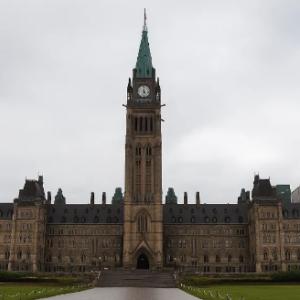Why the de-skilling of healthcare will be its downfall
What is de-skilling? Why is it important? And what is the motive behind it? These are all questions that need clear, precise answers.
It is abundantly clear that various strategies are being used to erode the quality of public healthcare. For too long, Medicare’s success has been a roadblock to the entrepreneurial desire for profit. Once introduced into the healthcare equation, profit quickly becomes a driving force, trumping care.
Look at the implementation of for-profit long-term care in Ontario. A disaster. For-profit homes required the military to get involved during the early days of the COVID pandemic. LTC and healthcare are inextricably entwined. What happens to one, ultimately happens to the other.
The idea that nurse practitioners can now earn 80% of what doctors earn for primary care, is very troubling on many levels. This is a great example of de-skilling; the process of reassigning the duties and responsibilities of a highly qualified and educated professional (a doctor) to a less qualified and educated professional, often with the expectation that the service delivered remains the same. It also presupposes that the scope of care remains unchanged, no matter the diagnosis.
We sometimes hear about policy research and data that supports a privatization agenda. But in fact, most existing research and data actually shows the opposite; that full-blown private healthcare, or some form of hybrid (two-tiered care), doesn’t work. All it does is allow the very wealthy to take control of essential public systems to create more and more profit for themselves. Meanwhile, the public acquires an ever-diminishing quality of service that becomes less affordable over time.
Anyone with more than a passing interest in how public healthcare can be destroyed simply needs to watch this documentary on the systematic dismantling of Britain’s NHS. On viewing the video, it is clear that the “dismantling playbook” is already well underway for public healthcare in Canada. De-skilling is a key step in the larger process of divesting from public healthcare infrastructure and reducing healthcare capacity.
There are thousands (if not many more) success stories in public healthcare that will never be replicated in a private system because of the costs associated with them. I am certain most of us know of family members or friends who have required major healthcare interventions they did not need to pay for. No need to file for bankruptcy because our publicly funded system takes care of such things.
Examples clearly show we do not need privatization to have exemplary innovation. The last thing we need then, is de-skilling. The ultimate impact of de-skilling is to give license to create more private clinics.
Doctors are far more capable than NPs of mitigating the need for recurrent care and treatment. After all, doctors have vastly more training and hands-on experience than NPs or pharmacists through residencies and fellowships. All professionals within the healthcare system are critical to supporting positive patient outcomes, but as de-skilling becomes popularized across multiple provinces, professional groups are increasingly pitted against one another – yet another tactic to sow discord in the healthcare system.
We should be trying to find ways to enhance care, not erode it. There is more to good healthcare practice than reducing wait times, long lineups or providing a two-tiered service by giving preference to one social class over another.
De-skilling, in combination with the newly revised capital gains tax, unfairly targets family physicians, which inadvertently (or advertently) creates a vacuum which privatization can and will fill. Doctors are already under threat and do not need more disincentive to remain in their practices. Such actions from our provincial and federal governments play directly into the hands of those who would like to see the end of public healthcare.
Canadians deserve strong leadership at the federal level to take control of the Canada Health Act, closing all loopholes allowing for the disintegration of public healthcare. Many falsely claim healthcare is a provincial jurisdiction. Rather, only the delivery of healthcare is of provincial jurisdiction, not the scope or management of it. We need leadership like that provided by Tommy Douglas in 1962. Polite negotiation is no longer a viable strategy.
In the end, who will be affected most by the de-skilling of healthcare? There is no question it will be us, our families, and our friends. There won’t be any exceptions.









